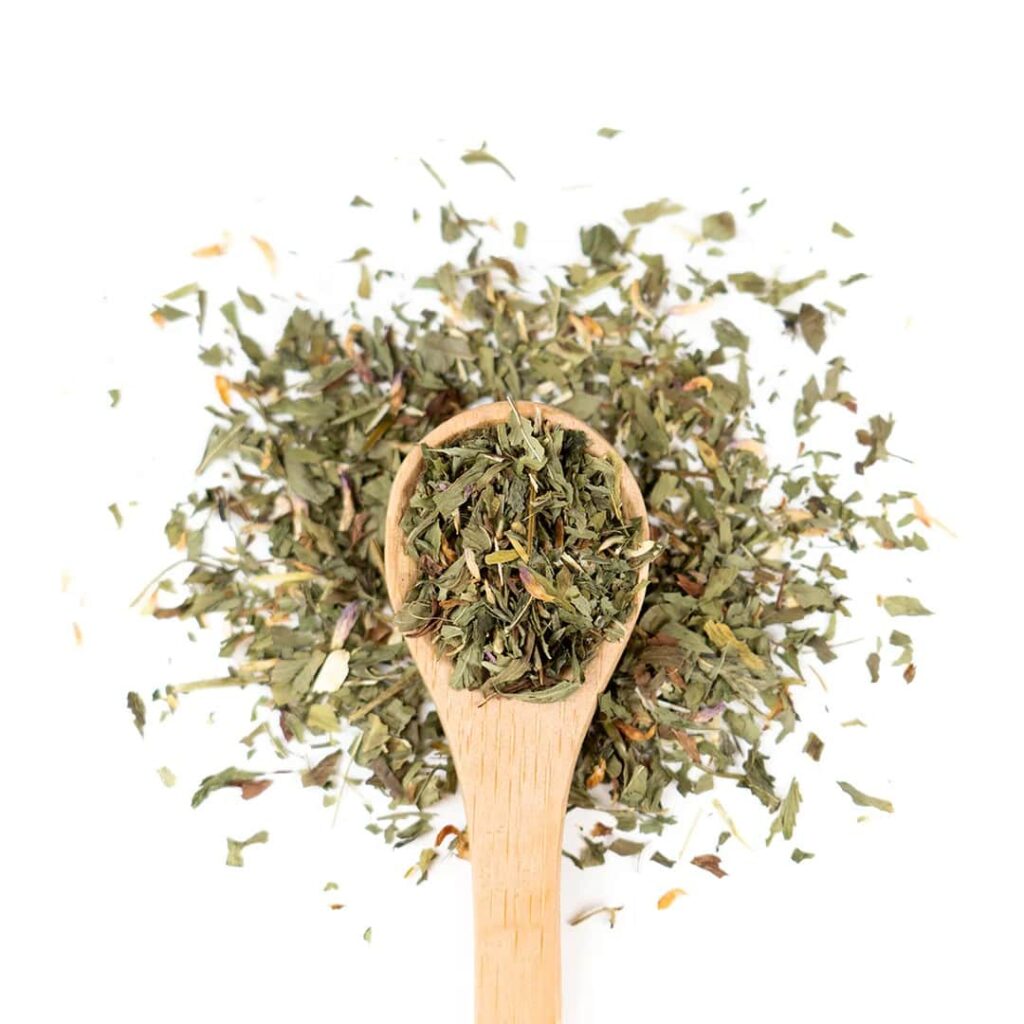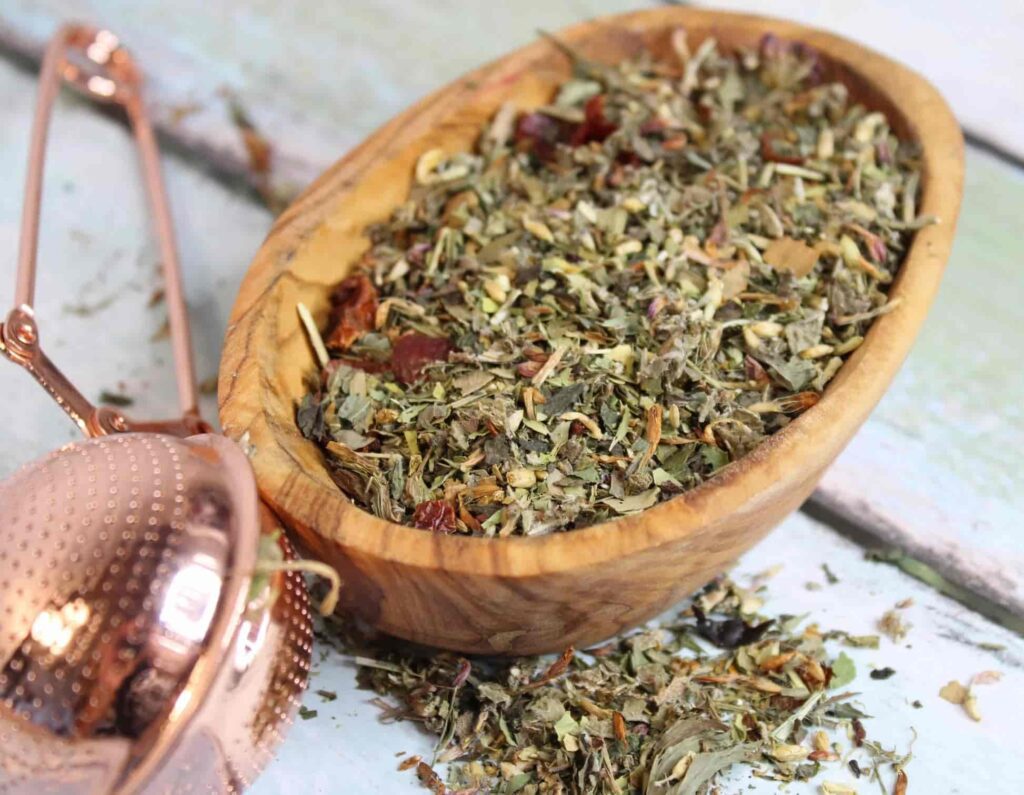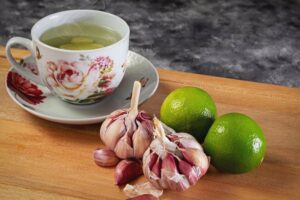Menopause, which signifies the end of a woman’s reproductive years, is an important turning point in her life. Several physiological changes brought about by this normal biological process can be difficult to control. Menopause symptoms that might lower quality of life include mood swings, hot flashes, night sweats, and disturbed sleep. To relieve these symptoms, many women are turning to natural therapies, even though hormone replacement therapy (HRT) and other pharmaceuticals are frequently prescribed. Menopause tea is one such therapy that is growing in popularity. This article explores the science, components, and advantages of menopause tea, offering a thorough how-to for anyone looking for a natural way to ease menopausal discomfort.
What is Menopause?
When a woman has not had a menstrual cycle for 12 consecutive months, she is said to be entering menopause. Though it might vary greatly, it usually happens between the ages of 45 and 55. Hormonal variations during perimenopause, the period before menopause, can produce a variety of symptoms and can extend for several years.
Common Symptoms of Menopause
- Hot Flashes and Night Sweats: Among the most prevalent symptoms are sudden sensations of warmth, frequently accompanied by perspiration.
- Sleep Disturbances: Sleep disturbances, such as insomnia, can be very concerning.
- Anxiety and Mood Swings: Hormonal fluctuations can exacerbate irritation, anxiety, and sadness.
- Bone Density Loss: Osteoporosis risk is elevated when estrogen levels are lowered, which can impact bone health.
The Rise of Natural Remedies
With increased awareness of the potential negative effects of HRT, more women are looking for alternate treatments. Natural therapies, such as menopause tea, take a holistic approach, incorporating herbs and plants known for their medicinal characteristics.
What is Menopause Tea?
A combination of herbs specifically chosen to relieve menopausal symptoms is known as menopause tea. In addition to this, these teas are made without caffeine and are intended to offer relief naturally. The components have been carefully chosen for both their unique advantages and their combined synergistic effects.
Key Ingredients in Menopause Tea
- Black cohosh: known for its estrogenic action, is a popular herb for treating hot flashes and night sweats.
- Red Clover: Red clover contains isoflavones, which mimic estrogen and can help reduce the frequency and severity of hot flashes.
- Dong Quai: Also known as “female ginseng,” dong quai helps balance hormones and enhance blood circulation.
- Chasteberry: This herb is known to regulate hormones and reduce mood swings and irritation.
- Ginseng: known for its ability to enhance energy and relieve stress, is an excellent addition to menopause tea.
- Licorice root: It contains phytoestrogens, which can help regulate hormones and promote adrenal health.
- Peppermint: It has a relaxing impact on the digestive tract and can help reduce bloating and pain.
- Sage: It is known for its anti-sweat qualities, which help to reduce hot flashes and night sweats.
Science Behind Menopause Tea

Phytoestrogens and Hormone Balance
Phytoestrogens, or plant-based substances that mimic estrogen in the body, are included in a lot of the constituents in menopausal tea. By balancing hormone levels, phytoestrogens can lessen the intensity of menopausal symptoms. Because of their high phytoestrogen content, red clover and licorice root are particularly useful in this respect.
Anti-inflammatory and Antioxidant Properties
Hot flashes and mood swings are frequent menopausal symptoms that are exacerbated by inflammation and oxidative stress. These effects can be lessened by using ingredients with anti-inflammatory and antioxidant qualities, such as peppermint and sage.
Adaptogens for Stress and Fatigue
Herbs known to be adaptogenic, such as chasteberry and ginseng, aid the body in adjusting to stress and preserving energy. The adrenal glands, which might overwork themselves during periods of hormonal fluctuation, are supported by these herbs.
Benefits of Menopause Tea
- Diminishes Hot Flashes and Night Sweats: Components like sage and black cohosh work very well to lessen the frequency and severity of these symptoms.
- Enhances Sleep Quality: Herbs with relaxing properties, such as chamomile and peppermint, can help relax sleep patterns and lessen insomnia.
- Evens Out Mood Flushes: Herbs that balance hormones and adaptogens, such as ginseng and chaste berry, can help calm the mind and lessen irritation.
- Promotes Bone Health: Red clover and licorice root contain phytoestrogens that can help preserve bone density and lower the incidence of osteoporosis.
- Improves General Well-Being: The synergistic benefits of many herbs promote general well-being by decreasing exhaustion and boosting energy.
How to Choose the Right Menopause Tea
Quality of Ingredients
Selecting menopause tea requires making sure that the product is manufactured with premium, organic ingredients. This guarantees that the herbs remain free of pesticides and other dangerous contaminants while maintaining their efficacy.
Blend and Proportions
The mixture and ratios of the constituents determine how effective menopause tea is. The most complete alleviation of menopausal symptoms can be obtained from a well-balanced combination.
Brand Reputation
Selecting a trustworthy company that specializes in herbal teas will guarantee efficacy and quality. Seek out companies that have transparent sourcing policies and good reviews.
How Spearmint Tea Can Help Your Skin and Refresh You
How to Prepare and Enjoy Menopause Tea

Tips for Preparation
- Brewing: To brew, use one tea bag or one teaspoon of loose tea for every cup of boiling water. To fully extract the benefits of the herbs, steep for five to seven minutes.
- Serving suggestions: Menopause tea tastes good warmed or cold. For added taste, add a little honey or a piece of lemon.
When to Drink
Drink menopause tea one to three times a day for optimal benefits. For the maximum advantages to be realized, consistency is essential. Having a cup in the morning, the afternoon, and the evening is beneficial to many ladies.
Incorporating Menopause Tea into Your Daily Routine

Morning Ritual
A soothing cup of menopause tea might help you make a good start to the day and lessen your morning irritability. When paired with a nutritious breakfast, it can enhance general well-being.
Afternoon Break
Have a cup of menopausal tea during your noon break. It may be less difficult to handle the remainder of your day if you do this since it can reduce stress and increase energy.
Evening Wind-Down
To encourage relaxation and enhance the quality of your sleep, finish your day with a calming cup of menopause tea. This can improve your quality of sleep overall and lessen the incidence of night sweats.
Related Blogs:
How Lavender Chamomile Tea Promotes Relaxation
How Passionflower Tea Can Improve Your Wellbeing
Conclusion
Although menopause is a normal stage of life, it doesn’t have to cause pain and suffering. Tea for menopause offers a safe, all-natural solution to handle the discomfort associated with this shift. You can get relief from hot flashes, mood swings, sleep issues, and more by making menopause tea a regular part of your regimen. Menopause tea offers a comprehensive approach to menopausal health, promoting general well-being and improving quality of life with its blend of carefully chosen herbs. With the all-natural assistance of menopause tea, drink away the discomfort and welcome this new chapter.
FAQ’s
What is menopause tea and how does it work?
A carefully blended tea called menopause tea is intended to ease the symptoms associated with menopause. It functions by making use of organic components with anti-inflammatory, adaptogenic, and hormone-balancing qualities. Important components such as red clover, sage, and black cohosh have phytoestrogens, which function as the body’s equivalent of estrogen and assist in maintaining hormonal balance. While peppermint and chamomile encourage relaxation and enhance the quality of sleep, other herbs like ginseng and chaste berry boost adrenal function and lower stress.
How often should I drink menopause tea to see results?
It is suggested that you consume menopause tea one to three times a day for the best effects. You may get the benefits of the tea by making it a daily part of your routine, but consistency is key. To effectively control symptoms during the day and night, many women find that having a cup in the morning, an afternoon cup, and an evening cup is useful.
Can menopause tea replace hormone replacement therapy (HRT)?
Hormone replacement treatment (HRT) is still necessary in cases where menopause tea is not an effective natural solution for menopausal symptoms. The intensity of symptoms and specific health requirements differ, even though many women find comfort in menopause tea. It is crucial to talk to your healthcare professional about any thoughts you may have about stopping HRT or seeking for other treatments. They can support you in making an informed choice based on your unique needs and health profile.







